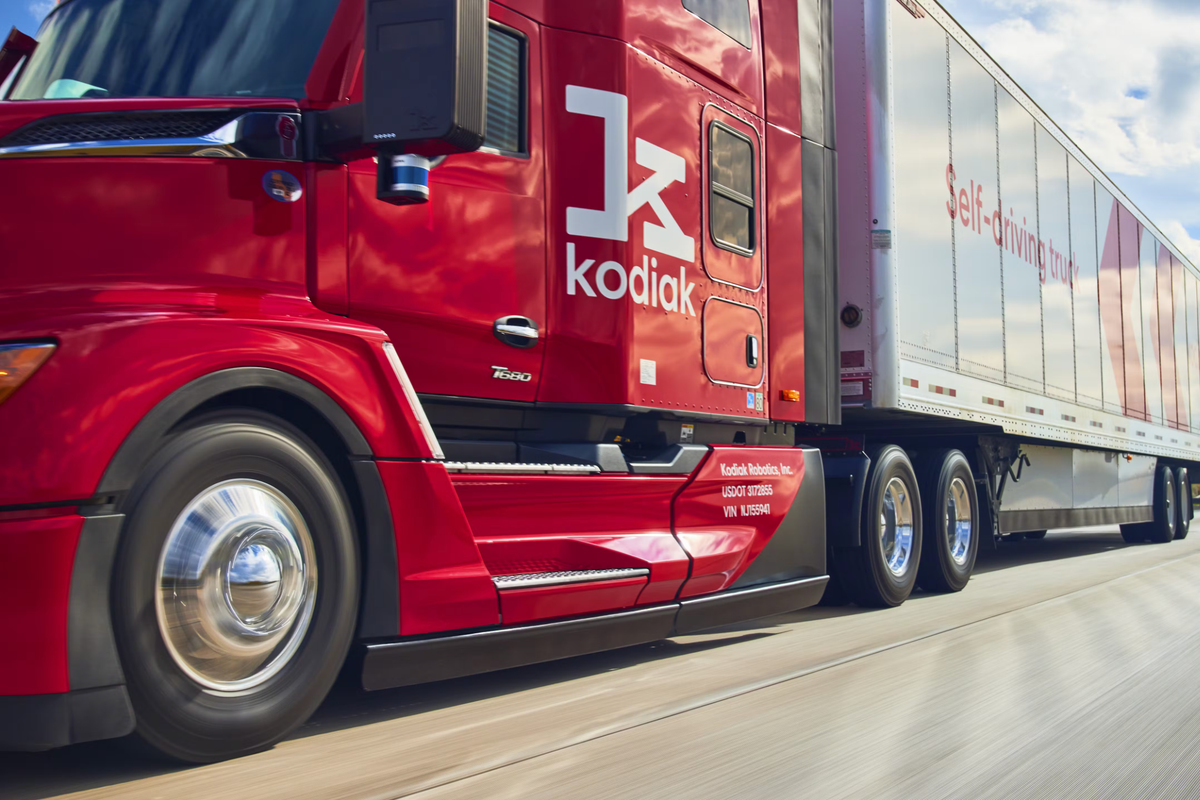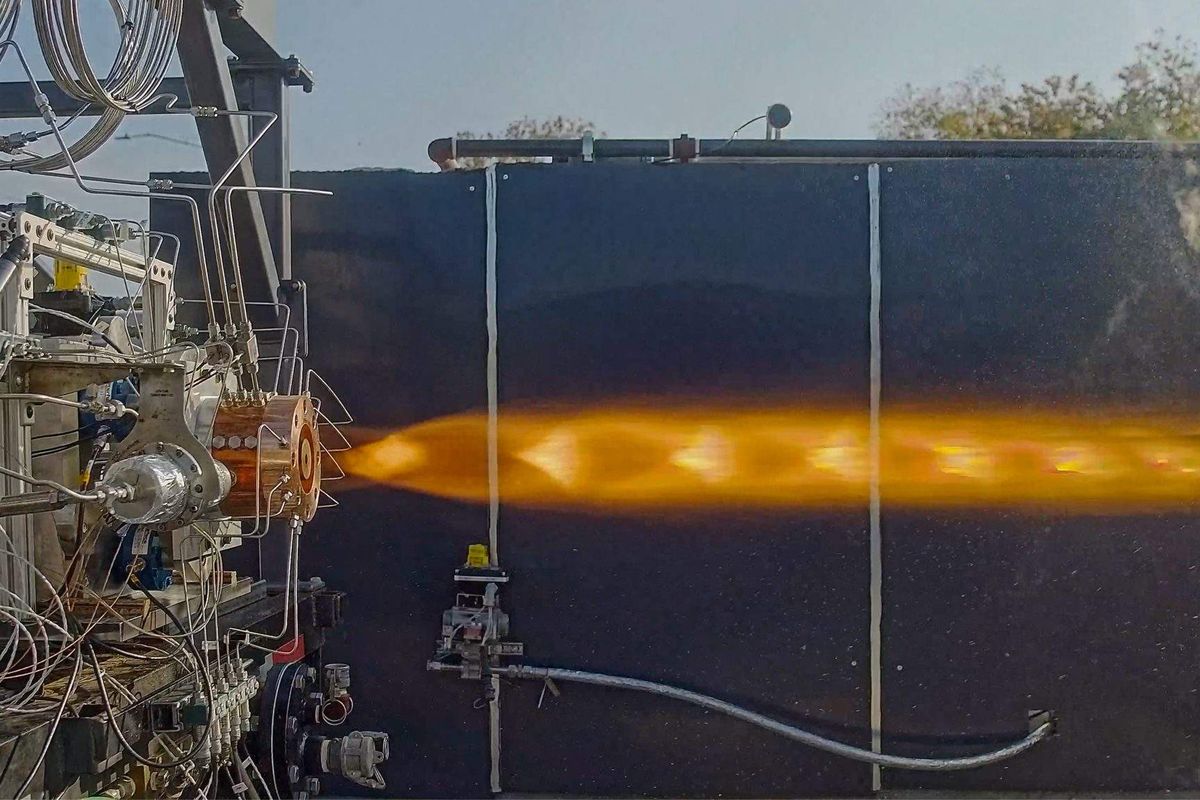Autonomous truck co. goes public and more innovation news to know
Trending News
Editor's note: It's time to catch up on the top Houston innovation news for the first half of November. From major investments to a big boost in dementia research, here are the most-read InnovationMap stories from Nov. 1-15, 2025:
1. Autonomous truck company with Houston routes goes public

Kodiak Robotics has formed Kodiak AI, whose stock now trades on the Nasdaq market. Photo via kodiak.ai.
Kodiak Robotics, a provider of AI-powered autonomous vehicle technology, has gone public through a SPAC merger and has rebranded as Kodiak AI. The company operates trucking routes to and from Houston, which has served as a launchpad for the business. Privately held Kodiak, founded in 2018, merged with a special purpose acquisition company — publicly held Ares Acquisition Corp. II — to form Kodiak AI, whose stock now trades on the Nasdaq market. Continue reading.
2. Venus Aerospace picks up investment from Lockheed Martin Ventures

Lockheed Martin Ventures says it's committed to helping Houston-based Venus Aerospace scale its technology. Photo courtesy Venus Aerospace
Venus Aerospace, a Houston-based startup specializing in next-generation rocket engine propulsion, has received funding from Lockheed Martin Ventures, the investment arm of aerospace and defense contractor Lockheed Martin, for an undisclosed amount. The product lineup at Lockheed Martin includes rockets. The investment follows Venus’ successful high-thrust test flight of its rotating detonation rocket engine (RDRE) in May. Venus says it’s the only company in the world that makes a flight-proven, high-thrust RDRE with a “clear path to scaled production.” Continue reading.
3. America's first Ismaili Center set to open in Houston in December

Nearly 20 years in the making, The Ismaili Center, Houston, opens in December 2025. Photo by Iwan Baan
The long-awaited Ismaili Center, Houston is set to open to the public next month. The 11-acre site has been painstakingly designed and constructed to offer indoor and outdoor public spaces for Houstonians to enjoy, connect, and engage. As the only Ismaili Center in the United States — and seventh in the world — it joins its international communities in London, Vancouver, Lisbon, Dubai, Dushanbe, and Toronto. Community welcome events are scheduled for December 12 and 13, but, until then, here are 10 features and things to know about the Ismaili Center, Houston. Continue reading.
4. Texas voters OK $3 billion for new dementia research institute

Thanks to the passage of Proposition 14, Texas now boasts the country’s largest state-funded initiative dedicated to dementia research and prevention. Photo via Unsplash.
Texas voters on Nov. 4 overwhelmingly approved a ballot measure that provides $3 billion in state funding over a 10-year span for the newly established Dementia Prevention and Research Institute of Texas (DPRIT). Thanks to the passage of Proposition 14, Texas now boasts the country’s largest state-funded initiative dedicated to dementia research and prevention, according to the Alzheimer’s Association. Up to $300 million in grants will be awarded during the 10-year funding period. Continue reading.
5. 2025 Houston Innovation Awards winners revealed at annual event
 2025 Houston Innovation Awards winners revealed at annual eventThe 2025 Houston Innovation Awards winners have been revealed. Courtesy photo
2025 Houston Innovation Awards winners revealed at annual eventThe 2025 Houston Innovation Awards winners have been revealed. Courtesy photoAfter weeks of anticipation, the 2025 Houston Innovation Awards winners have been revealed. Finalists, judges, and VIPs from Houston's vibrant innovation community gathered on Nov. 13 at Greentown Labs for the fifth annual event. This year, the Houston Innovation Awards recognized more than 40 finalists, with winners unveiled in 10 categories. Continue reading.

 The company wants to make Texas "the home of self-driving trucks." Photo courtesy of Kodiak Robotics
The company wants to make Texas "the home of self-driving trucks." Photo courtesy of Kodiak Robotics Apple doubles down on Houston with new production facility, training center Photo courtesy Apple.
Apple doubles down on Houston with new production facility, training center Photo courtesy Apple.